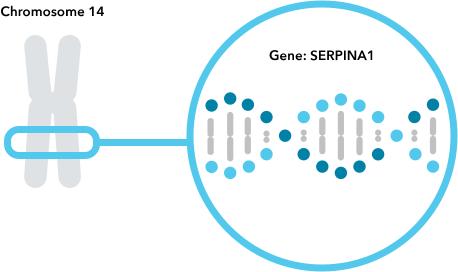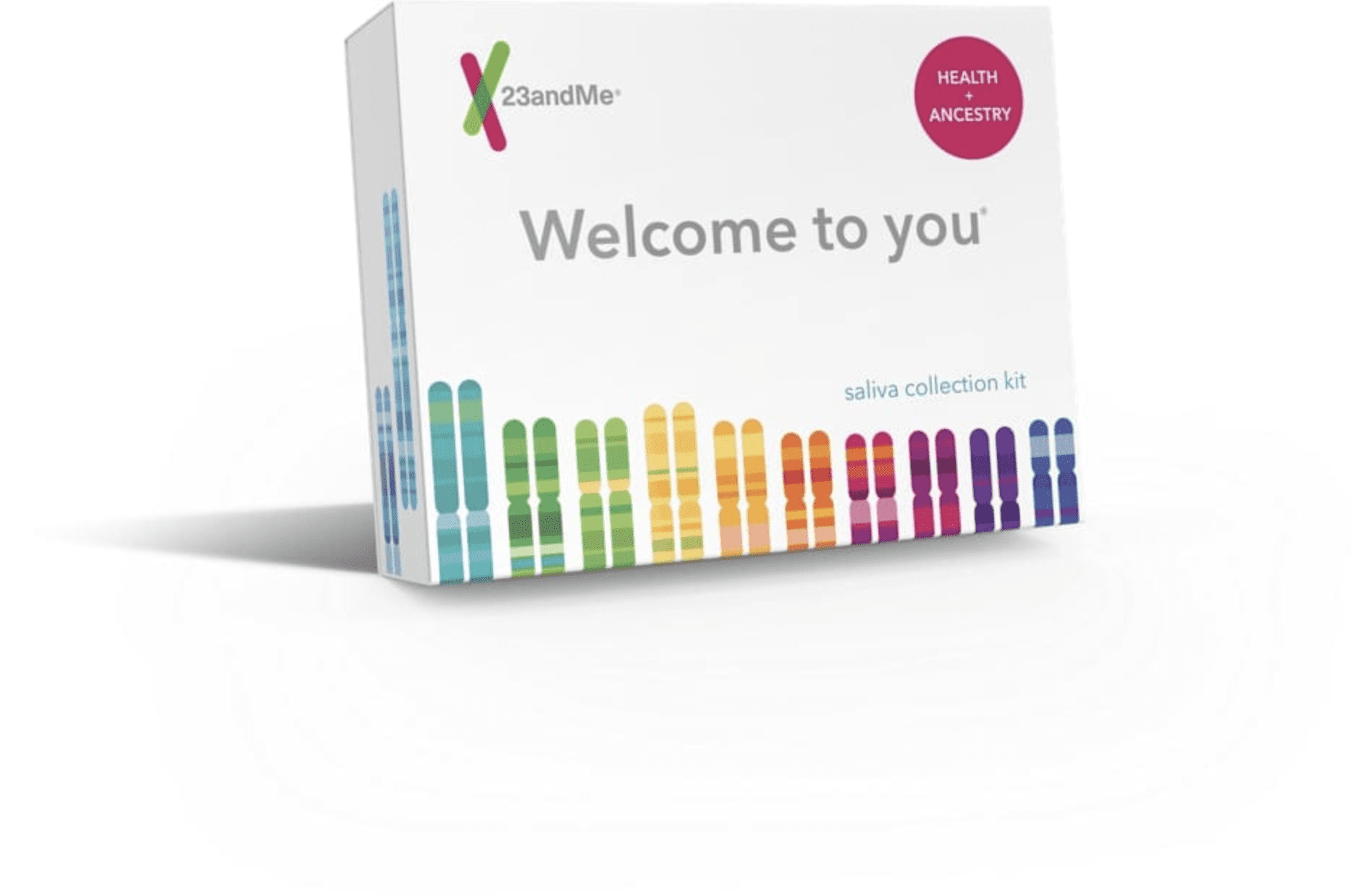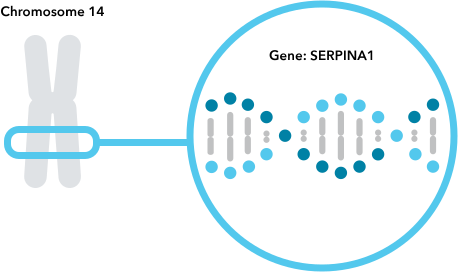Explore AAT Deficiency and what your DNA can tell you
Is AAT deficiency genetic?
Yes. AAT deficiency is caused by genetic variants (differences) in the SERPINA1 gene. The SERPINA1 gene contains instructions for making a protein called alpha-1 antitrypsin (AAT). This protein is made in the liver and is transported to the lungs where it helps protect lungs from damage.
Certain genetic variants in the SERPINA1 gene result in too little AAT protein getting transported to the lungs, and more AAT protein getting trapped in the liver. As a result, the lungs are less protected from damage, and the liver can become damaged as well.

Other factors that may cause an increased likelihood of AAT deficiency
For people with AAT deficiency, the chances of developing lung and liver disease also depend on lifestyle, environment, and other factors. For example, smoking increases the chances of developing lung disease and can lower the age when symptoms start. Personal or family history of lung disease, and exposure to certain chemicals or pollutants can also increase the risk for lung disease. Drinking excessive amounts of alcohol and having nonalcoholic fatty liver disease (NAFLD) can increase the risk of developing severe liver disease. Certain infections can also increase the risk for liver disease. Consult with a healthcare professional before making any major lifestyle changes.
AAT deficiency often goes undiagnosed
Many people with AAT deficiency do not know they have the condition. In fact, it’s estimated that fewer than 10% of people with AAT deficiency have been properly diagnosed.
Find out if your genetics might increase your likelihood of developing AAT
Want to learn more? The 23andMe Alpha-1 Antitrypsin Deficiency Genetic Health Risk report* can tell you if you may be at risk for lung and liver disease related to AAT deficiency based on your genetics. This report looks for two specific genetic variants in the SERPINA1 gene. These genetic variants are the two most common variants linked to AAT deficiency. This report is available through the 23andMe Health + Ancestry Service.

Health + Ancestry Service
*The 23andMe PGS test uses qualitative genotyping to detect select clinically relevant variants in the genomic DNA of adults from saliva for the purpose of reporting and interpreting genetic health risks. It is not intended to diagnose any disease. Your ethnicity may affect the relevance of each report and how your genetic health risk results are interpreted. Each genetic health risk report describes if a person has variants associated with a higher risk of developing a disease, but does not describe a person’s overall risk of developing the disease. The test is not intended to tell you anything about your current state of health, or to be used to make medical decisions, including whether or not you should take a medication, how much of a medication you should take, or determine any treatment. The Alpha-1 Antitrypsin (AAT) Deficiency genetic health risk report is indicated for reporting of the PI*Z and PI*S variants in the SERPINA1 gene and describes if a person has variants associated with AAT deficiency and a higher risk for lung and liver disease. The variants included in this report are most common and best studied in people of European descent.
References
MedlinePlus. “Alpha-1 antitrypsin deficiency.” Retrieved Sep 21, 2021, from https://medlineplus.gov/genetics/condition/alpha-1-antitrypsin-deficiency/.
National Heart, Lung, and Blood Institute.” Alpha-1 Antitrypsin Deficiency”. Retrieved February 19, 2019, from https://www.nhlbi.nih.gov/health-topics/alpha-1-antitrypsin-deficiency.
National Organization for Rare Disorders. (2019). Alpha-1 Antitrypsin Deficiency. Retrieved March 7, 2019, from https://rarediseases.org/rare-diseases/alpha-1-antitrypsin-deficiency/.
Stoller JK et al. (2006). “Alpha-1 Antitrypsin Deficiency.” [Accessed Sep 16, 2021].

Leave a Reply